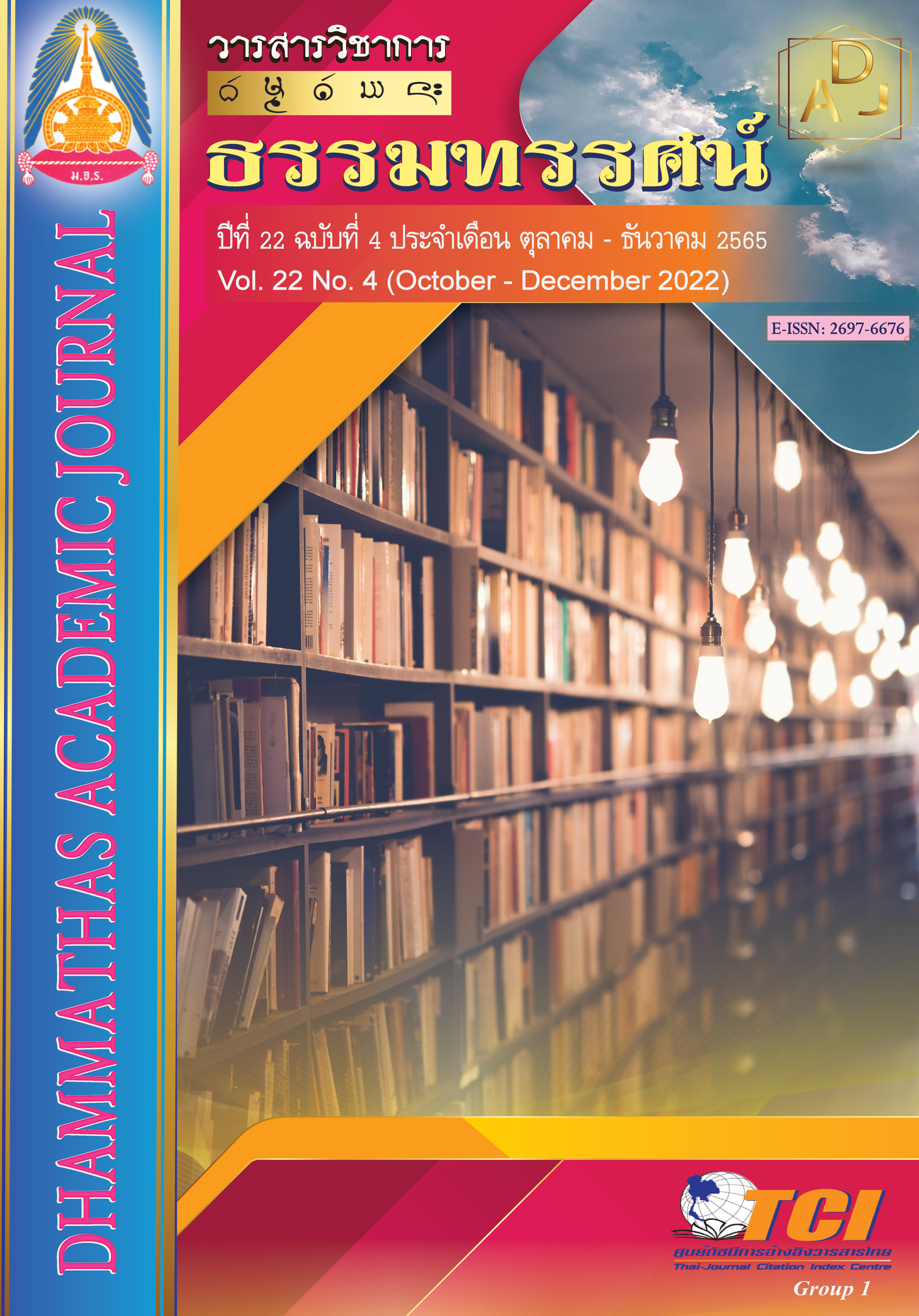The Development of a Causal Stuctural Relationship Model of Factors Affecting Effective Teacher Empowerment of Opportunity Expension School in the Northeast
Main Article Content
Abstract
The objectives of this research were 1) to development of a causal structural relationship model of factors affecting effective teacher empowerment of an opportunity expansion school in the northeast; and 2) to examine the coherence of a causal structural correlation model of factors influencing the empowerment of school teachers, expanding educational opportunities in the Northeast Thailand developed with empirical data. This study was quantitative research. The sample group consisted of 500 administrators and teachers, academic year 2020. They were obtained using a multistage randomization method. Data were collected using a 5-level estimation scale questionnaire. The data were analyzed by frequency, percentage, mean, standard deviation. Pearson's Product-Moment Correlation Coefficient and analysis of linear structural equation model with packaged program.
The findings were as follows:
1. The causal structural relationship model of factors affecting effective teacher empowerment of opportunity expansion school in the northeast consists of 5 factors, namely, 1) atmosphere and organizational culture enhancement, 2) strengthening and developing cooperation, 3) leadership, 4) enhancing work motivation, 5) teacher Empowerment.
2. The developed model is consistent with the empirical data, with Chi-square = 31.77, df = 61, p-value = 0.99, χ2/df = 0.52, RMSEA = 0.00, GFI = 0.99, AGFI = 0.98. By enhancing the atmosphere and organizational culture it had the highest total effects on teacher empowerment, followed by leadership enhancement strengthening and developing cooperation. The four variables were able to jointly explain the 51 percent variance in teacher empowerment at statistical significance at the .01 level.
Article Details

This work is licensed under a Creative Commons Attribution-NonCommercial-NoDerivatives 4.0 International License.
เพื่อให้เป็นไปตามกฎหมายลิขสิทธิ์ ผู้นิพนธ์ทุกท่านต้องลงลายมือชื่อในแบบฟอร์มใบมอบลิขสิทธิ์บทความ ให้แก่วารสารฯ พร้อมกับบทความต้นฉบับที่ได้แก้ไขครั้งสุดท้าย นอกจากนี้ ผู้นิพนธ์ทุกท่านต้องยืนยันว่าบทความ ต้นฉบับที่ส่งมาตีพิมพ์นั้น ได้ส่งมาตีพิมพ์เฉพาะในวารสาร วิชาการธรรม ทรรศน์ เพียงแห่งเดียวเท่านั้น หากมีการใช้ ภาพหรือตารางของผู้นิพนธ์อื่นที่ปรากฏในสิ่งตีพิมพ์อื่นมาแล้ว ผู้นิพนธ์ต้องขออนุญาตเจ้าของลิขสิทธิ์ก่อน พร้อมทั้ง แสดงหนังสือที่ได้รับการยินยอมต่อบรรณาธิการ ก่อนที่บทความจะได้รับการตีพิมพ์References
เฉลิมชัย แก้มมณีชัย. (2556). การพัฒนารูปแบบการเสริมสร้างพลังอำนาจครูในโรงเรียนมัธยมศึกษา สังกัดสำนักงานคณะกรรมการการศึกษาขั้นพื้นฐาน. สกลนคร: มหาวิทยาลัยราชภัฏสกลนคร.
นงลักษณ์ วิรัชชัย. (2542). โมเดลลิสเรล: สถิติวิเคราะห์สำหรับการวิจัย. (พิมพ์ครั้งที่ 3). กรุงเทพฯ: จุฬาลงกรณ์มหาวิทยาลัย.
มณีรัตนา โนนหัวรอ. (2557). การพัฒนารูปแบบการประเมินเสริมสร้างพลังอำนาจเพื่อเพิ่มสมรรถนะด้านการวัดและการประเมินผลการศึกษาของครูประจำการ สังกัดสำนักงานเขตพื้นที่การศึกษาประถมศึกษาปราจีนบุรี เขต 2. (ปริญญานิพนธ์การศึกษาดุษฎีบัณฑิต). กรุงเทพฯ: มหาวิทยาลัยศรีนครินทรวิโรฒ.
วรัญญา เรือนกาศ. (2560). ปัจจัยที่ส่งผลต่อการเสริมสร้างพลังอำนาจครูโรงเรียน สังกัดเทศบาลจังหวัดอุตรดิตถ์. (วิทยานิพนธ์ครุศาสตรมหาบัณฑิต). อุตรดิตถ์: มหาวิทยาลัยราชภัฏอุตรดิตถ์.
สมจิตร สงสาร. (2552). การพัฒนารูปแบบปัจจัยที่มีอิทธิพลต่อการเสริมสร้างพลังอำนาจการทำงานที่มีประสิทธิผลของครู. (วิทยานิพนธ์ศึกษาศาสตรดุษฎีบัณฑิต). ขอนแก่น: มหาวิทยาลัยขอนแก่น.
เสน่ห์ เสาวพันธ์. (2554). การพัฒนาคุณภาพผู้เรียนตามแนวทางจิตตปัญญาศึกษาโรงเรียนปทุมรัตน์พิทยาคม. (วิทยานิพนธ์ครุศาสตรดุษฎีบัณฑิต). มหาสารคาม: มหาวิทยาลัยราชภัฏมหาสารคาม.
Bolin, F. S. (1989). Empowering Leadership. Teachers College Record, 91(1), 81-96.

